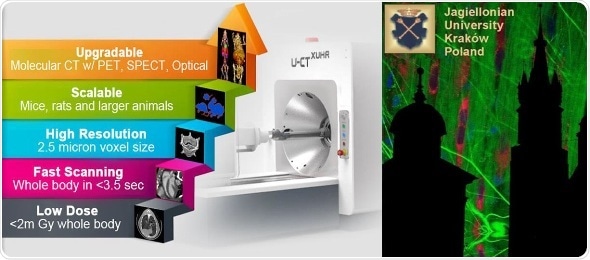Mar 25 2019
The Department of Microbiology, Faculty of Biochemistry, Biophysics and Biotechnology (FBBB) at the Jagiellonian University in Kraków recently became the first institute in Poland to install MILabs’ Adaptive U-CT for in-vivo preclinical imaging.

To accommodate the diverse in-vivo imaging needs of the FBBB, including imaging of bones and ossicles plus soft tissues in mice and larger rodents, the university decided to acquire Milabs unique Adaptive CT, a system that can adapt to researchers’ applications so that users don’t have to adapt their research.
Explaining his facility’s decision to select the Adaptive U-CT/XUHR, prof. dr hab. Jan Potempa – Head of Microbiology Department, FBBB at the Jagiellonian University, said:
We were looking for a single versatile microCT to handle the wide variety of research needs of our Faculty consisting of 17 Departments and Laboratories, while being able to provide high-quality images to meet their specific needs.”
We are pleased that the most preeminent university of Poland has decided to select our Adaptive U-CT system for its core imaging research. Thanks to our radiation dose efficient design, our microCT is indeed able to handle the most demanding preclinical in-vivo X-ray imaging applications.”
Prof. F. Beekman, CEO/CSO, MILabs